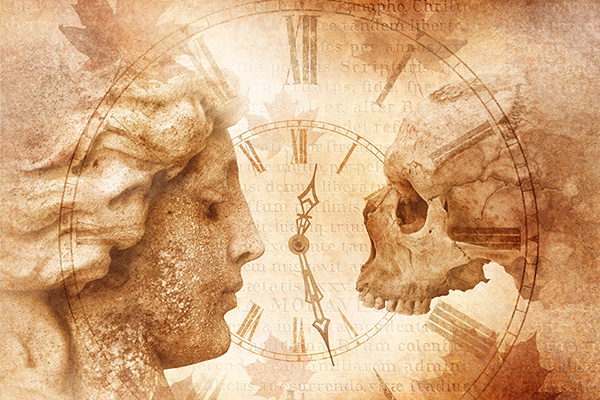self-expression
Painting As A Powerful Spiritual Practice
 As a visual artist, I find painting to be a powerful tool for spiritual growth and manifestation. Art has been used as a medium for self-expression and energy channeling for centuries. Painting in particular is an enlightening way to tap into one’s innermost thoughts and feelings and connect with your higher self.
As a visual artist, I find painting to be a powerful tool for spiritual growth and manifestation. Art has been used as a medium for self-expression and energy channeling for centuries. Painting in particular is an enlightening way to tap into one’s innermost thoughts and feelings and connect with your higher self.
One of the ways that painting can be particularly helpful in growth and healing is that it offers a way for us to let go of what no longer serves us. We too often hold onto old traumas, fears, and limiting beliefs that keep us stuck in negative patterns. Channeling these toxic thought patterns and emotions into art can help us to release it and create space for new energy to flow in.
The act of painting itself can be deeply meditative and calming, allowing the artist to quiet the mind and tap into their intuition. When we allow ourselves to be mindful and entirely present in the moment and focus solely on the act of creating, we access a state of energetic flow that is incredibly soothing, healing, and transformative.
Additionally, painting can be used as a powerful tool for manifesting. When we create art with a specific intention in mind, we are essentially using our thoughts and imagination to give physical form to that intention. Making an original painting is much more powerful and intentional than creating a vision board, for example. By painting images and scenes of the things we desire, we are sending a clear message into the universe that we are ready to receive it.
Choose Your Words Wisely
 Did you ever stop to think about the sounds that come out of our mouths? We use them to form phrases and sentences. It is how we communicate. But, have you ever considered the true nature of these sounds, or the power contained within our words, the power of the vibration?
Did you ever stop to think about the sounds that come out of our mouths? We use them to form phrases and sentences. It is how we communicate. But, have you ever considered the true nature of these sounds, or the power contained within our words, the power of the vibration?
Words are formed using the organs of speech that creates a vibration, thus causing a sound. We know that sound doesn’t just disappear. Sound travels – from our mouths, past the person it is directed to, past a few others, and on and on, into the ethers.
Words are more powerful than we realize. Maybe we should choose our words more wisely. If we send negative words out, whether we sincerely mean it or not, it never goes away. That negative vibration we sent out has an effect on the earth, the solar system and the universe. It may even come back and have an effect on you, without you ever even realizing it.
Historically soldiers have always marched as an army in one way or the other. It made me wonder why they march in sync and to a set rhythm, like they do. Because, it looks cool? No, they march in unison and uniformly, because their foot stomping causes a vibration. If the vibration matches the frequency of a target, it becomes a powerful weapon.
The Walls of Jericho is a good example. The Israelites wandered the desert for 40 years. Upon arriving at Jericho, they marched around the city for six days. On the seventh day they circled the city seven times. The priests then blew their trumpets and they shouted and the walls of the city fell down. Just another bible story? Well, we know vibration can bring down bridges and maybe those priests knew the note to play that gave a specific vibration that brought those walls down.
Turn Up The Music Of Your Soul
 As have been pondering the miracle of sound and music lately. During these times of uncertainty, I have a collection of songs in my memory bank that I can easily call upon for inspiration. I use many of these songs to jump start my days.
As have been pondering the miracle of sound and music lately. During these times of uncertainty, I have a collection of songs in my memory bank that I can easily call upon for inspiration. I use many of these songs to jump start my days.
Long after a popular song has been sung, whether it is a familiar hymn, a spiritual mantra, a national anthem, or a Top 40 hit, there is often a residual hum that we hold on to. This constant reminder, time and time again, brings us back to the original song, striking a chord with those emotions that were first charged by the lyrics and the melody.
Music lodges itself in our memories and can be brought forth at any time without actually hearing the tune itself. Sound or hearing is also said to be the final sense to leave as we depart this life. Kahlil Gibran, the great Lebanese writer and author of The Prophet, wrote “music is the language of the spirit. It opens the secret of life bringing peace, abolishing strife.”
Growing up, I loved all types of music. My eclectic taste was universal and reflected artists from a broad spectrum of genres. I was also fortunate that my metropolitan city was host to artists from all over the world. And thanks to my older brother, whose work in entertainment law made him familiar amongst promoters and musicians alike, I was blessed to gain entre to many of these concerts, including backstage passes.
My favorite acts packed up their instruments from crowded cities and remote villages of the Far East and Africa, making many sacrifices to cross the Atlantic, and often shared between sets the perils of their journey. I likened their sound to ethereal gold, so precious that it would stay with me forever.
Increase Your Power And Influence With Charisma
 Charisma is a skill that can have a profound impact on our personal and professional lives. It is often wrongly assumed that charisma is a personality trait or talent that some people are born with. The truth is charisma is a learned behavior and skill that can be developed by anyone.
Charisma is a skill that can have a profound impact on our personal and professional lives. It is often wrongly assumed that charisma is a personality trait or talent that some people are born with. The truth is charisma is a learned behavior and skill that can be developed by anyone.
Charisma is the magnetic ability to attract, charm, and persuade others with our words and actions. The term originates from the Greek khárisma, which means ‘favor freely given,’ or ‘gift of grace,’ because the ancients believed that possessing this quality was a divine gift bestowed only upon those who were favored by the gods.
It is generally associated with people who are confident, engaging, and influential. By cultivating charisma, we become more effective at reaching and connecting with others, which can be invaluable in life.
Whether we are seeking to build stronger, healthier personal relationships, foster better professional connections, or make more friends, having a strong presence and the ability to engage with others is a key factor for success. Charisma is not about being arrogant, manipulative, or insincere. Rather it is about being authentic and genuine, while also being able to express ourselves in a way that resonates with others.
Charismatic people are skilled communicators who are able to listen actively, empathize with others, and express themselves clearly and persuasively. They are also able to project confidence, enthusiasm, and positivity, which can be infectious and uplifting to those around them.
More Joy, Less Struggle!
 I work with many clients who are experiencing significant spiritual growth. They are often exploring different metaphysical modalities, questioning their beliefs, investigating their energy patterns and mental habits, and contemplating higher consciousness. They read books, attend workshops, watch videos, and put a great deal of energy, effort and focus into their personal unfolding.
I work with many clients who are experiencing significant spiritual growth. They are often exploring different metaphysical modalities, questioning their beliefs, investigating their energy patterns and mental habits, and contemplating higher consciousness. They read books, attend workshops, watch videos, and put a great deal of energy, effort and focus into their personal unfolding.
However, while they enjoy the freedom and fulfillment that comes with having all the ‘ah-ha’ moments and uncovering deeper levels of healing and development, many of them also begin to wonder after a while why it is no longer so much fun. If this is at all familiar to you, your angels want you to know that you are not alone in this feeling.
As we venture deeper and deeper down the rabbit hole of metaphysics and mysticism, we tend to get more and more ‘in our heads.’ Activities and hobbies that we once loved also begin to lose their appeal. It even becomes difficult to hang out with the people or be in the social settings that were once enjoyable to us.
The angels confirm that this is perfectly normal. As we begin to see through the veil and recognize what is real, it is only natural for the things that once served to distract us from the truth of who we truly are, to lose their shine and appeal. The quest then is to discover and engage with those things that truly bring us joy and fulfillment, beyond the everyday noise of unconscious existence.
The angels invite you today to explore what it is that brings your soul joy in this lifetime, and open to the possibility that growing through joy will bring you greater soul growth than any other means. Here are three simple ways you can tap into your soul’s joy.
What If There Is No Tomorrow?
 A sense of anguish sometimes strikes us while we are experiencing something good in our life. In the midst of the delightful feelings of happiness and joy, we grimly remind ourselves that we must enjoy it while it lasts, because all good things come to an end.
A sense of anguish sometimes strikes us while we are experiencing something good in our life. In the midst of the delightful feelings of happiness and joy, we grimly remind ourselves that we must enjoy it while it lasts, because all good things come to an end.
Yes, everything does come to an end, right up to our own passing from this world to the next. Yes…our inevitable death. Thinking about this can be sad and depressing, but it also not… if we choose otherwise.
There is an ancient philosophy of reflecting on one’s mortality known as memento mori, which in Latin means ‘remember death.’ This profound saying does not only serve to remind us of that our death is inevitable, but also invites us to think about death in a more meaningful way.
In Stoicism, a school of ancient Greek philosophy, memento mori was seen to be a thought process to attribute deeper meaning to life. The philosopher Epictetus famously said, “Keep death and exile before your eyes every day, with all that seems terrible – by doing this, you will never have a base thought, nor an excessive desire.”
Although the notion of memento mori seems at first scary, sad, or tragic, it is in truth a reminder that everything and everyone will eventually come to an end. The moment we sensibly embrace this universal truth, we become so much more aware of how precious every moment of our life is. And ideally it then inspires us to live more fully and intensely, without wasting any more time on trivial things and petty issues.
Being Your Strongest, Most Authentic Self
 Many people tend to think that being vulnerable and open is a bad thing, because it makes them vulnerable to getting hurt in life and especially in relationships.
Many people tend to think that being vulnerable and open is a bad thing, because it makes them vulnerable to getting hurt in life and especially in relationships.
When someone disappoints or hurts us, whether deliberately or inadvertently, it is usually because they have deep wounds of their own that stems from their past, especially for their childhood. These unresolved traumas are often dormant and unconscious.
One might feel this is still no excuse to treat others poorly, or that they should know better. However, because these people typically have not done much inner work or self-healing to really know how to be in loving, happy, and functional relationships. I’m not condoning their bad behavior, but if they actually do not know any better, then how can one expect it from them?
I find people who are stuck in such patterns of hurting others are usually very much defensive and in denial. If you gently suggest what you may need from them, or bring up an aspect that the two of you could work on together to improve the relationship, they tend to instantly throw what you say back in your face and make it all about you. Suddenly, all of it is your fault.
This defensive behavior is a clear signal that this person has a lot of hurt, and is either fearful or unable to work through it. Therefore, if you bring up something that triggers their pain, they immediately see it as a threat. They feel attacked, or that they are being made a scapegoat.